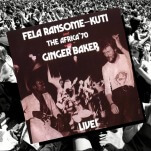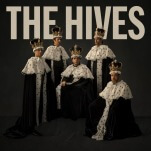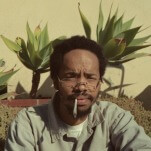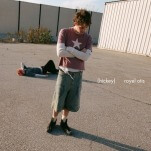The Polka King
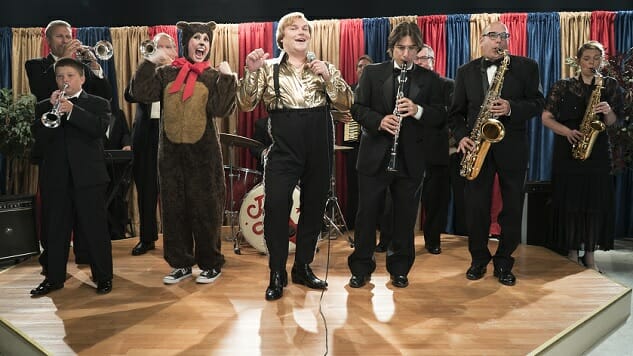
Now is the winter of our Jack Black content: First Jumanji: Welcome to the Jungle, a wind-down from the year-end awards contender rush, and now Maya Forbes’ The Polka King, a screwball biopic based on the 2009 Jan Lewan documentary The Man Who Would Be Polka King. If Lewan’s name doesn’t call to mind a blaring chorus of accordions and trumpets, a primer: Lewan went to prison in the early 2000s for orchestrating a Ponzi scheme around his Pennsylvania-based polka band and through his various subsidiary business ventures, defrauding elderly patrons of his music to the tune of millions of dollars. And if Black’s involvement in the project strikes you as unexpected, then a primer on Richard Linklater’s 2011 film Bernie is in order, too.
Like The Polka King, Bernie is a true-crime story structured as a comedy, where Black cuts a charming, whimsical figure playing Bernie Tiede, a Texan mortician who received a life sentence in 1999 for gunning down his widowed octogenarian millionaire lady friend. (In fairness to Tiede, she wasn’t a nice person.) Whether or not you find humor in the murder of an old lady, even a very mean old lady, will determine how you respond to the Linklater movie. By contrast The Polka King is made accessible by its accidental timeliness, being the saga of a relentless, bloviating self-promoter with too many businesses to his name who succeeds in each of them by cheating every system put before him.
As far as post-2016 election movies go, though, The Polka King works precisely because it isn’t about politics whatsoever. Instead, Maya Forbes has crafted a zippy comedy about a charismatic charlatan and the disastrous impact his fakery has on the rubes gullible enough to fall for his schtick. As such, The Polka King is a superb American movie that takes direct aim at long-held myths of American life. As long as Forbes remains in that mode, it’s hard not to connect the dots between her subject’s past and our present. If there’s an element of prescience at play here, there are also telltale signs of great filmmaking, because great films find ways of taking the pulse of eras other than their own without trying.
Forbes starts us off with a title card assuring her audience of the film’s veracity: “This really happened,” it reads. “In Pennsylvania.” From there we slide right into 1990, with Black on stage singing “Ole Ole” accompanied by his band, which includes a handful of brass instruments, a man dancing in a chicken suit, and his best friend Mickey (Jason Schwartzman) tooting away on his clarinet. The performance is followed by expositional dialogue between Jan and one of his dupes-to-be, where he recounts his life story in brief while praising America as the land of opportunity. It’s the vehicle by which Forbes places a spotlight on the American dream, at once a convenient justification for screwing innocent people on your climb to the top of the ladder and also an excuse for your personal shortcomings.
-

-

-

-

-

-

-

-

-

-

-

-

-

-

-

-

-

-

-

-

-

-

-

-

-

-

-

-

-

-

-

-

-

-

-

-

-

-

-

-


